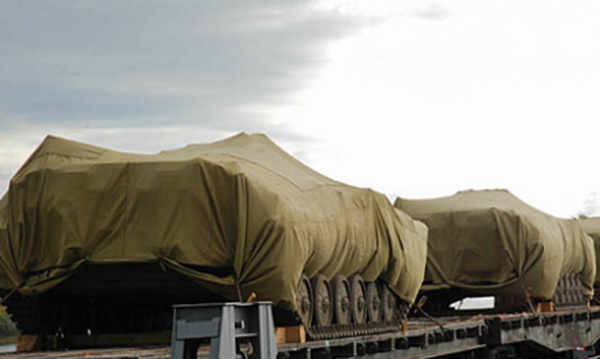Kremlin: Russian weapons sales remain high, payments impossible to obtain due to sanctions
Demand for Russian weapons abroad remains consistently high, Sergey Chemezov, the CEO of the Russian state corporation Rostec, said at a meeting with Russian President Vladimir Putin.
Despite the U.S. sanctions against Rosoboronexport, which is a subsidiary of Rostec and serves as an intermediary for Russia’s arms exports and imports, the portfolio of orders for military-technical cooperation remains at $51.1 billion, Chemezov said.
"It's a big deal, and we've had that much for the third year," he boasted to the president, whom he has known since the 1980s, when Chemezov and Putin worked together in the Soviet secret service, the KGB, in the German Democratic Republic.
The Air Force and Air Defense products are in high demand, the head of Rostec said.
"The delivery of the S-400 Triumph missile defense system to Turkey was fulfilled, this is the first contract of this scale with a NATO country. The contract amounted to $2.5 billion," Chemezov said, adding that the possibility of supplying an additional batch is being worked out.
Russia is the second largest arms exporter in the world, after the United States, with annual deliveries worth about $15 billion. However, due to sanctions, it is almost impossible to get money for the weapons sold.
During the year, the debts of counterparties to Rostec increased by 23%, or 151.8 billion rubles, and compared to 2014 - 2.2 times, by 450.1 billion rubles, or 6.25 billion dollars.
Receivables may also include advance payments to Russian defense plants or foreign component suppliers, but much of the nearly a trillion debt is due to unpaid money for shipped products, including non-payments due to sanctions, a source close to Rosoboronexport told the Russian news agency RBC.
In addition to the direct debt from buyers who either buy using Russian loans or simply do not pay, " there still might be money that was actually paid, but remains unaccounted for in the banks because these banks fell under sanctions, and it is impossible to obtain these funds," the source said.
By the end of 2020, Russia will lose about 17% of its current market share, with sales falling to $6.85 billion, Jane's Information Group predicts. At the same time, Russia will lose its second place in the list of the largest sellers to France, which is expected to increase weapons sales to $6.96 billion through the sale of Rafale fighter jets to India and Qatar and the growing demand for its helicopters.
